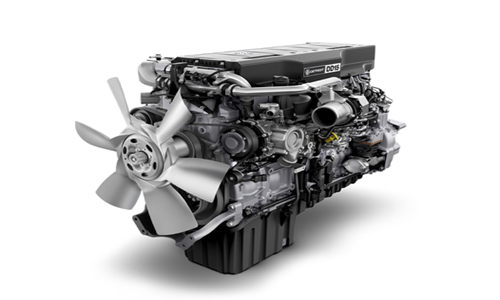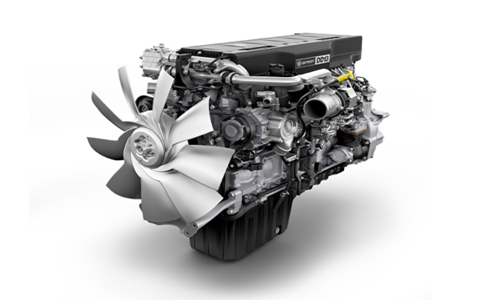Being the Team Run Smart Pro that happens boast the "shortest length of haul" on average with all of my loads, I am always caught in a predicament when spec’ing out a new truck, or looking at used one’s too for that matter. There is a lot of talk out there about large-displacement vs. small-displacement engines and their weight-to-power advantages, as well as fuel efficiency differences realized through actual implementation. Having run 12-liter and 15-liter engines in my operation over the years, there are several reasons I find myself making the 15-liter choice when it is offered to me other than the simple answer of, “It makes sense for my particular duty cycle.”

There are a lot of things that come down to how an owner-operator or fleet owner specs a truck. Aside from the gearing, cab & chassis options, and creature comforts, the engine choice is probably the most critical of all when it comes down to it! After all, you want to be dang certain you have the right engine pulling you down the road for your particular operation. The first truck I ever bought was a small displacement engine (12-liter), since at the time I was focused on running regional and wanted all of the weight advantages I could get to help maximize payload and fuel economy. This small displacement helped me learn the true meaning of working an engine at its “peak of performance” and just what doing so would do to my maintenance costs further down the line. By taking on longer than expected hauls, that were heavier than expected as well, I learned important lessons quickly about working an engine hard. Ultimately operating this engine at the top of its performance thresholds the majority of the time would often lead to parts wearing out faster than if I had been able to work nearer to its lower design limits. You wouldn’t abuse a track-trained thoroughbred by overworking him daily, but rather properly train and exercise him in preparation for race-day when exertion would be at its max.
After now having gone through several different brands and sizes of engines in my trucks, a few things weigh heavy on my mind with each new engine decision. First, I always make sure to estimate the proper payload and duty cycle. I now haul a mixed bag of freight including light loads and near-gross heavy loads, with the majority of them being maxed-out beer, water, bulk liquid tote, and juice loads. Although I am heavy most of the time, we operate all trucks 95%+ of the time within a 250 mile radius of Los Angeles. This leads to several steep mountain grades where power and torque are a key concern. It is at this junction of information when it comes to a point where I must deicide if the weight savings is worth putting a smaller engine at the peak of its design limits the majority of the time. I have given consideration to the 13-liter DD13, but leaned on the 15-liter DD15 so that I would be able to operate it at the lower end of its operational capacity, thus theoretically leading to less maintenance in the long run from the engine not being worked as hard.

Having learned years ago lessons from operating a 12-liter at its peak horsepower and peak torque more than what was probably best for it, I think it is more important to my operation to have the higher parameters available, even if they are not used. For me to operate let say an 11-liter motor which has a peak HP of 425/peak torque of 1550 lb-ft versus my 15-liter with peak HP of 505/peak torque of 1750 lb-ft would mean I would have the option to turn up the HP and torque if I needed to and not be stuck at the described operational thresholds of the smaller engine. The only thing that has put me in consideration of the DD13 as an alternate however are the many close similarities to the DD15, while still being able to capitalize on the weight savings. I have pretty much ruled out the 11-liter and 12-liter (aside from natural gas) for my diesel operations though, since the 15-liter has done me well, while never lingering on the back of my mind whether I am working it too hard for too long.
I do realize that not all operations are the same and that no one “cookie cutter” approach to spec’ing any aspect of a truck is available. There is a reason that some lightweight fleets spec 11 and 12-liter engines that make perfect sense for them. I was just always brought up to know that if I was to abuse any engine by running it at peak the majority of the time, it would cost me more in maintenance down the line than if I had been good to it and not constantly overworked it. With my big displacement engine I am rarely worried about overworking it and that is actually the last thing on my mind operating my current DD15/DT-12 Detroit Integrated Drivetrain spec! Remember in the end to spec what’s right for you and what you do because there is no one engine size that solves it all!